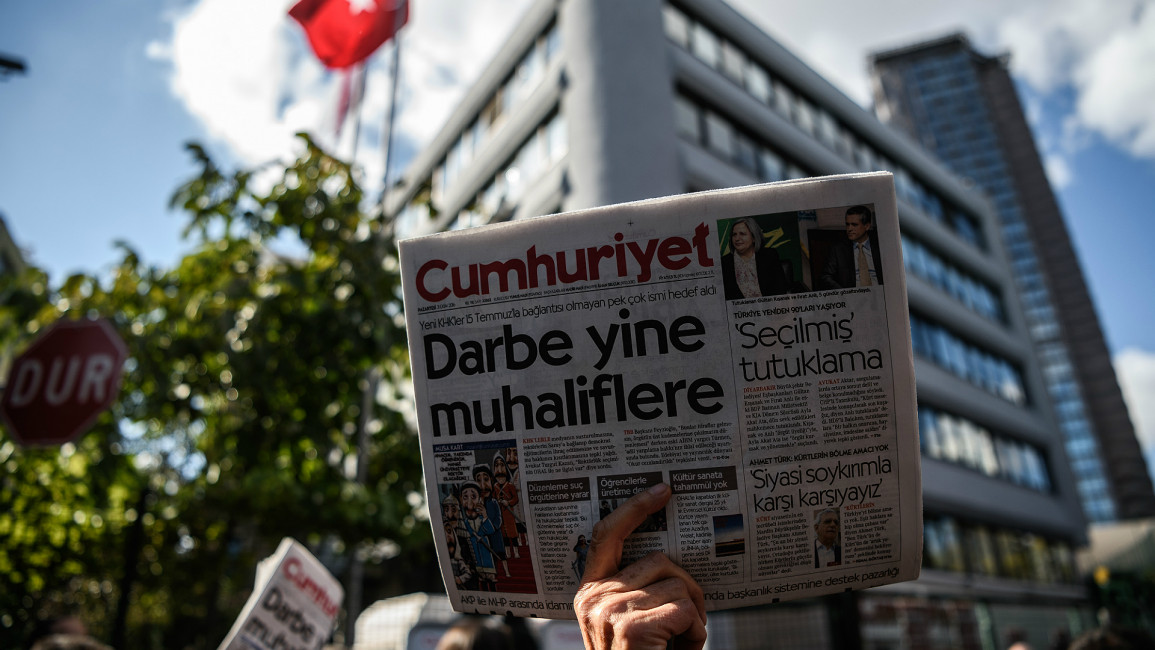Turkish government dodging scrutiny by silencing independent media: HRW
The rights group says the Turkish people are being denied access to a "regular flow of independent information", hitting out at Turkish authorities for its persecution of journalists and interference with editorial independence as well as the takeover and closure of private media companies.
The crackdown on journalists has sharpened in the wake of the attempted military coup in July aimed at ousting President Recep Tayyip Erdogan.
"The Turkish government and president's systematic effort to silence media in the country is all about preventing public scrutiny," said Hugh Williamson, Europe and Central Asia director at HRW.
"Keeping 148 journalists and media workers in jail and closing down 169 media and publishing outlets under the state of emergency shows how Turkey is deliberately flouting basic principles of human rights and rule of law central to democracy."
Human Rights Watch found that the crackdown has not only targeted media and journalists associated with the Gulen movement, which the government alleges is a terrorist organisation behind the coup attempt, but also pro-Kurdish media and independent voices critical of the government such as the newspaper Cumhuriyet and its journalists.
The rights group interviewed journalist, editors, lawyers and press freedom activists as well as reviewed court documents relating to the prosecution and jailing of journalists and media workers.
Those interviewed described a stifling atmosphere for their work and rapidly shrinking space for reporting on issues the government does not want covered.
 |
The Turkish government's erosion of media freedom harms Turkey and its democracy as well its international reputation |  |
Several of those interviewed were later arrested and are in prison pending trial or had to flee Turkey to avoid being detained.
"In the past journalists were killed in Turkey," one journalist told Human Rights Watch. "This government is killing journalism in its entirety."
Over the past year, the government has engineered the takeover of privately-owned media and other organisations by appointing government-approved trustees to run them, which HRW describes as a violation of the right to private property, and a policy of deliberate censorship aimed at suppressing critical and dissenting voices.
Journalists have also described limited access and risks to safety in the predominantly Kurdish southeast where conflict has escalated between Ankara government and the Kurdistan Workers' Party.
Last month, two reporters from BBC Turkish and Voice of America were detained in the Siirt region.
HRW has called on the Turkish government to end the detention and prosecution of journalists, condemn and investigate attacks on journalists and stop misusing the Penal Code to put media under trusteeship.
"The Turkish government's erosion of media freedom harms Turkey and its democracy as well its international reputation," Williamson said.
The New Arab has contacted the Turkish embassy in London for a comment.



